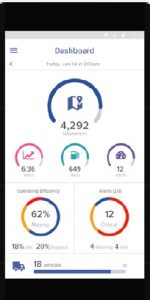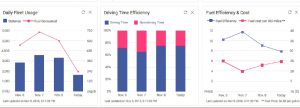December 23, 2024
December 23, 2024
Copyright 2023, IT Voice Media Pvt. Ltd.
All Rights Reserved
 The platform offers real-time location, maintenance planning and theft monitoring to OEMs for connected cars
The platform offers real-time location, maintenance planning and theft monitoring to OEMs for connected cars The Aeris IoT Automotive Services platform enables original equipment manufacturers (OEMs) to customize connected vehicle solutions in order to create a better driving and ownership experience.
The Aeris IoT Automotive Services platform enables original equipment manufacturers (OEMs) to customize connected vehicle solutions in order to create a better driving and ownership experience. new services, patching security bugs, and more; application programming interface (API) gateways that easily connect to OEM systems or municipal systems and easy integration with third-party systems.
new services, patching security bugs, and more; application programming interface (API) gateways that easily connect to OEM systems or municipal systems and easy integration with third-party systems.